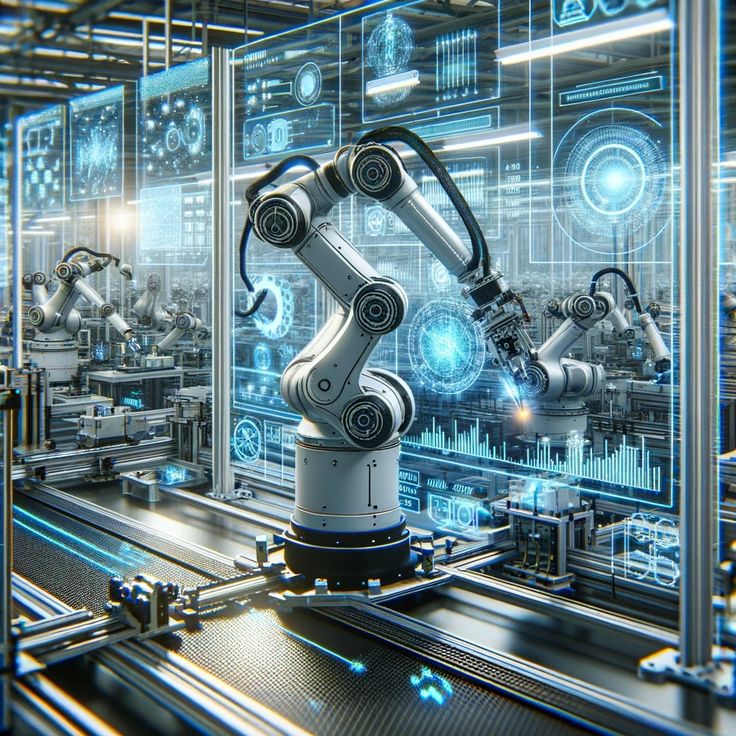The rise of Artificial Intelligence (AI) has sparked a wide range of conversations, from excitement about the potential to revolutionize industries to fears about its impact on jobs, privacy, and even the future of humanity itself. One of the most pressing questions in these discussions is: Will AI take over humans one day?
The Current State of AI
Today, AI is already deeply integrated into our daily lives. From voice assistants like Siri and Alexa to sophisticated algorithms predicting consumer behavior, AI is present in ways we often don’t even notice. It’s changing how we work, interact, and live, but its capabilities are still limited to narrow, specialized tasks. We call this kind of AI narrow AI or weak AI. It excels at performing specific tasks, like playing chess or recommending movies, but it lacks the general intelligence and consciousness that humans possess.
Can AI Achieve General Intelligence?
The ultimate question is whether AI can develop Artificial General Intelligence (AGI) – an AI that has the ability to perform any intellectual task that a human can. Researchers have been working on AGI for decades, and while there has been some progress, we are still far from creating a machine with true human-like cognitive abilities.
Even if AGI is achieved, it’s uncertain whether it would be capable of “taking over” humanity. One of the primary concerns is that an advanced AGI could become so powerful that it surpasses human intelligence in every domain. This scenario, often referred to as the singularity, could lead to unpredictable consequences. However, many experts argue that we are nowhere near this point, and achieving AGI may take decades, if not centuries, of research and development.
AI’s Impact on Jobs and Society
While the question of AI “taking over” humanity may sound like science fiction, AI is already impacting the workforce. Automation, powered by AI, has begun to replace jobs that involve repetitive, manual tasks. Industries such as manufacturing, transportation (with self-driving cars), and even services like customer support are being reshaped by AI technologies.
Some worry that as AI becomes more capable, it will lead to widespread job losses, leaving many without work. Others, however, see AI as a tool to enhance human capabilities rather than replace them. With the right guidance and regulations, AI could help create new job opportunities and allow humans to focus on more creative, strategic, and interpersonal roles that machines cannot easily replicate.
Ethical and Control Considerations
The question of whether AI could take over humans is closely tied to how we manage and control AI development. Experts emphasize the importance of building AI systems that are aligned with human values and ethics. The goal should be to ensure that AI benefits society without compromising safety, security, or freedom.
One of the biggest challenges lies in ensuring AI remains controllable. The idea of creating AI systems with fail-safes or “kill switches” that humans can activate in case of emergencies is one possible solution. However, this also introduces the challenge of ensuring that these systems can’t be bypassed or corrupted by malicious actors.
The Human-AI Relationship: Cooperation, Not Conquest
Rather than seeing AI as a threat, many experts argue that the future will likely be one of cooperation between humans and machines. AI can augment human capabilities, enabling us to solve complex problems, advance scientific discoveries, and create new technologies. In this vision, AI becomes a partner, helping humans achieve more than we could alone.
Moreover, AI lacks the emotional intelligence, moral compass, and social awareness that humans possess. Machines, no matter how advanced, cannot replicate the unique qualities of empathy, creativity, or the ability to make complex ethical decisions based on the nuances of human experience.
Conclusion
The idea of AI “taking over” humans is a thought-provoking and controversial topic. While the technology is advancing rapidly, we are far from a scenario where AI has the potential to dominate humanity. Instead, AI is more likely to play a role in enhancing human lives, improving industries, and solving problems we have yet to tackle.

